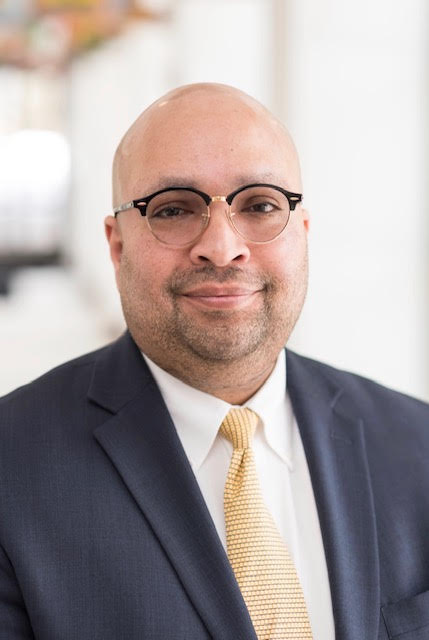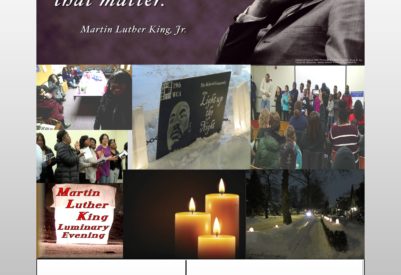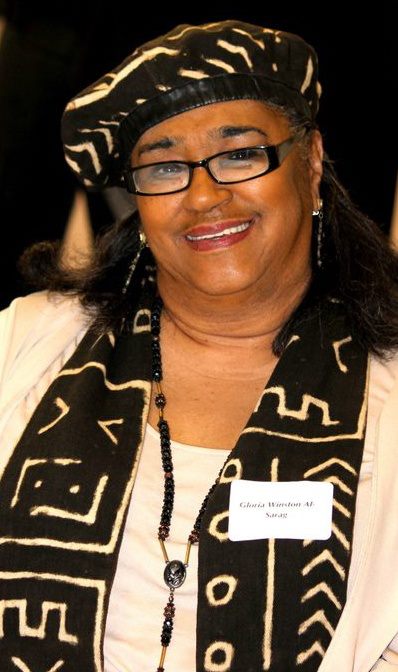
Born in Kingston, Jamaica, Kevin Beckford's dad grew up on a farm.
His last name is that of an English slaveholder, Lord William Beckford, a proprietor of farms in Jamaica with huge slave populations working free labor. Similar to what was done in the United States.
“I could only imagine, he raped his slaves and they took on his name,” Beckford said.
There’s an actual YouTube video that talks about Lord William Beckford and the horrible person he was in terms of not treating his slaves well. So, it was interesting when Beckford and his siblings got older to find out the origin of where their family name got started.
“It helps us with the tenacity of the things we do today to make a difference in the world,” he noted.
In November 2017, he was elected to the Town Board of Pittsford, NY, becoming the first African American to serve in its more than 200-year history.
“When I ran for office, I didn’t know I was going to be breaking new ground to become the first person of color to run a petition, just to get their name on the ballot,” Beckford noted. “Prior to that, we haven’t really had a Democrat on the town board in well over one-hundred plus years. Some democrats were not coming out to vote because they felt, what’s the point. When we were running in 2017, the electorate in the Town of Pittsford composed of one-third registered democrats, one-third registered republicans and not much less than one-third independent or unrelated,” he pointed out. “Two thirds of the folks were not republicans, so it didn’t make sense, why the board was one-hundred percent republican and they only represent one-third of the registered voters in Pittsford. So, the first part of our communication campaign was to inform voters of this fact, which in result, spurred a lot of people to cast their votes and we had a resounding win.”
“We ran a very grassroot campaign, knocking on doors and talking to people,” Beckford continues. “We were indicating to them that we were looking to serve them better and serve them differently. The key things were the roles prior to us running were roles that were reserved for prestige and accolades. We were changing it to say these are roles of service.”
Beckford in his first year on the board offered an amendment to raise the minimum wage for lower skilled jobs, pertaining to kids that are seasonal employees in Pittsford. For people employed in long term part-time or full-time positions, he offered an amendment to raise the minimum wage to $13.50 and to have an index, where it will never fall back again.
Beckford proposals for increasing workers’ wages are scaled according to a MIT study on the entry level point of a livable wage, which includes benefits to employees.
Also, in that first year, he offered a proclamation to be created that celebrates the life of Martin Luther King Jr., designated to be framed and placed in perpetuity in a high traffic area in Pittsford library.
All proposals were passed.
Joining the University of Rochester (U of R) in December 2017 as senior director of staff diversity, equity and inclusion, his role obligated him to provide the strategy and direction to transform the university’s thirty-one thousand employees.
“In my early days it was really about equity for all and about twenty years ago diversity was starting to become mainstream within businesses, then it evolved from diversity to inclusion and recently, they’ve added on equity, as being the focus of trying to create a more equitable environment with access to all,” Beckford pointed out. “So, we’ve moved from not being in the room, to being in the room, sitting at the table and having a voice (vote) without fear of retaliation. The evolution was like a three-legged stool. Equity is this last stage to say, the process should be more equitable…. period! And if it is, actually by default, allows for greater diversity, demographics, inclusion and impact.”
Prior, Beckford has served in a variety of operational roles in the corporate, banking and health care industries.
He has held roles in call center operations, IT, technical communications, supply chain and purchasing at Kodak and as executive operational leadership roles at Bank of America, PNC Financial, Bank of Montréal and Interim Director of Nursing Operations at Rochester Regional Health.
Among the aforementioned, he has also provided senior and executive level transition and change management consulting services for large, medium and small companies.
In those various positions, Beckford has brought a focus on operational excellence, effectively managing change, and championing diversity, equity and inclusion in the workplace.
“We’ve a well diverse workforce at the U of R,” Beckford pointed-out. “But where we have challenges as most companies do are in the area of leadership. When we look at this area, composed of professional administration and supervision, that’s our area of greater opportunity, where we would love to see that number grow to something that’s more representative of the availability here in Rochester.”
“Diversity and inclusion are critical for business today because America is changing,” he continued. “By 2040, they will no longer be a majority race. It will be similar to Toronto, where they are no one majority based. What we call the minority today, will be the majority tomorrow. It means, we are going to have a much more diverse demographic of the employee based and consumer based. We must start eliminating inequalities from the past that’s today, still preventing equal access to the full complemented jobs. We want to move away from where people of color are only in certain jobs, like entry jobs or manual and low skilled jobs, which are real jobs and important jobs that have tremendous value to society,” he emphasized. “But at the end of the day, people of color should be able to occupy any job within the spectrum. The flow of the complemented job, they are still struggling with. Eventually, what that will translate into as a consumer, we’re going to reach a point, if we are not there already, where we may choose not to shop or use the services of businesses that want our money, but not our personhood,” he warns. “Diversity today is critical and necessary for the sustainability of businesses and those that are ignoring that will seal their fate. If a business is not addressing the issue of diversity, it will be the very thing that will bring them down.”
Another important issue for him is the right for undocumented immigrants to obtain a driver license.
In the struggle to protect and restore practical human rights for undocumented immigrants, who works on farms that produces a significant amount of food and diary for the area is extremely important, Beckford says.
“It has gotten muddled and complicated, because the issue I think has gotten politicalized,” he explained. “I’ve created a discussion around undocumented workers after September 11. Those licenses were removed, and it should’ve excluded farm workers, but it didn’t. Overnight, they weren’t able to drive to the store to get food or to school to talk about their kids, the doctor or the drive to the emergency room or just to have a life. They were people in the neighborhood offering to give them a lift, but they were being charged for it. They were being charged seventy-five to one-hundred and fifty dollars, just to go to the store.”
“The people, who are undocumented and working on our farms are providing valued, necessary, meaningful work,” he continued. “To me, to accept the produce of the fruits of the labor, but not honor their bodies, minds and personhood is a tremendous inequality. If you don’t support them to have a license to be able to have a life, then you should not be accepting the produce and the milk. You can’t have one without the other. To me it was a convenient way to close your eyes to the humanity associated with this,” Beckford noted. “I held a town discussion in Pittsford last year, where I brought undocumented people from the farms, where people were able to get a chance to see, hear, touch and feel; to recognize their humanity. And to say, the milk in Pittsford dairy is coming from this farm. These are the people that’s producing it for you, so when you sip that milk, you need to be thinking about this father, this mother and this child. And by the way, call your congressman or congresswoman and tell them you support their vote for driver licenses to be restored, because it’s just inhumane not to.”
In concert with a state-wide push to restore driver's licenses for the undocumented workers were successful. The NYS Senate passed the "Green light Bill" in summer of 2019 and the Governor signed it.
Article by Author Rodney Brown, Executive Director of Southwest Tribune Newspaper and Brown Publishing LLC





